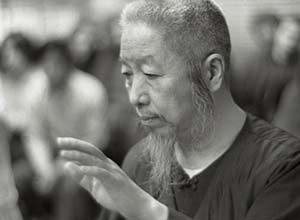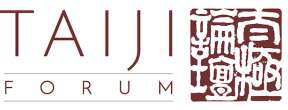Cheng Man Ching’s way of teaching (1): “I am not a guru.”

Cheng Man Ching, student of Yang Chengfu, came to New York in the 60s, at first teaching Taijiquan in the Chinese community, later also teaching Westerners. Being a university professor from an educated family and deeply rooted in traditional Chinese culture, he was confronted with flower children searching for a guru. Cheng Man Ching made a big impression on their lives, as described in Wolfe Lowenthal’s “There Are No Secrets” (1991) and in the film “The Professor – Tai Chi’s Journey West” (2016).
Looking beyond this colourful surface, some aspects of Cheng Man Ching’s way of teaching deserve a second look, for they illustrate his response to a double challenge:
- bridging the cultural gap between “Confucian China” and “New Age New York”
- establishing a morally sound student-teacher relationship in an environment in which the students expect the teacher to be something special, somebody to follow.
Cheng Man Ching did not speak English, his teaching and his remarks in class were translated by two of his senior students. Although things were thus made clear by means of language, he always insisted: “Do as I do – do not do as I say.”
Video “Cheng Man Ching’s way of teaching (1): “I am not a guru.”
“I am not a guru.”
Concerning guidance, also in questions of daily life, Cheng Man Ching did not succumb to the pressure of his students to provide answers to every question. By refraining from giving answers and by not providing guidance on every issue, he thus created an open space for the students to figure things out for themselves.
The Taiji teacher not being a guru in today’s terms might mean not to act as a life coach for one’s students. Not telling the students what to do in daily life, even if they turn toward their teacher to ask, means in turn not to make one’s students dependent on one’s guidance, but enabling them to find their Taiji way – and even more their way in life – independently.
This ultimately results in a refusal of any hierarchy which does not stem from better knowledge. – And even if one might have (or feel to have) better knowledge of life, not to exploit one’s better knowledge to raise oneself above others.
Author: Taiji-Forum
Images: Ken van Sickle and Taiji-Forum
